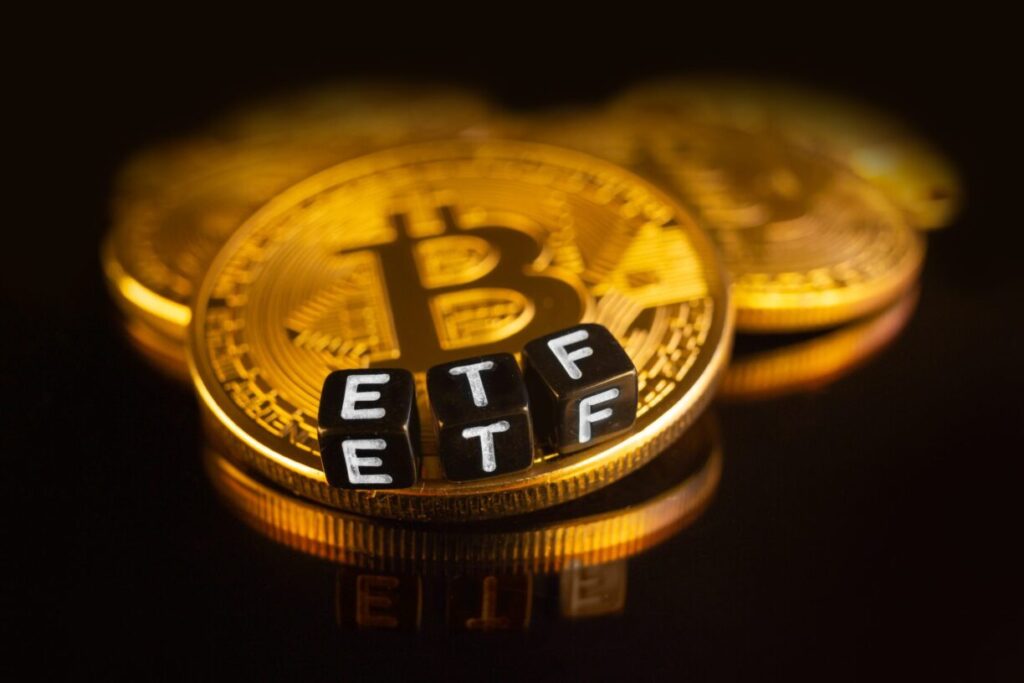Since January 2024, Bitcoin ETFs have experienced record inflows of $17.5B, surpassing Nasdaq-100 QQQs and attracting substantial institutional interest.

Bitcoin ETFs are becoming the fastest-growing ETFs, garnering substantial interest from institutional investors.
These exchange-traded funds (ETFs) have generated an extraordinary $17.5 billion in net flows since their inception in January 2024. This figure surpasses the previous record established by the Nasdaq-100 QQQs, which amassed approximately $5 billion in their inaugural year.
Global ETF market is dominated by Bitcoin ETFs, with $17.5B influx
Especially among institutional investors, Bitcoin ETFs have experienced a record-breaking adoption rate. In a recent X thread, Matt Hougan, the CIO of Bitwise, emphasised that they have attracted the fastest-growing inflows of all time. Since their inception, the $17.5 billion inflow represents a substantial achievement, surpassing the Nasdaq-100 QQQs’ previous record by a considerable margin.
This rapid expansion is especially noteworthy in light of the persistent scepticism of sure market participants who assert that institutional adoption is negligible.
The perception that these ETFs are primarily propelled by retail investors, with minimal institutional participation, has been one of the primary arguments against their success. As of Q2 2024, institutions hold only 21% of the current BTC ETF assets under management (AUM), according to 13F filings. Retail investors account for the remaining 79%. Critics have cited this information.
Nevertheless, Hougan’s analysis refutes this narrative by contrasting them with history’s ten fastest-growing new ETFs. His research indicates that the former is at the forefront of institutional adoption, regardless of whether the number of institutions or the total AUM is considered.
Institutional Adoption of Nasdaq-100 QQQs
Hougan also contrasted the institutional adoption of BTC ETFs with that of the Nasdaq-100 QQQs, which had previously held the record for ETF inflows. Hougan observes that Bitcoin ETFs have attracted three times the number of institutional holders within the first two quarters compared to the QQQs during a similar timeframe, even thodirect comparisons beingng due to differences in the periods and availability of historical data.
This implies that institutional interest in them is not only extant but also increasing at an unprecedented rate.
Simultaneously, the expansion of BTC ETFs indicates a more extensive trend in the global ETF market, which has experienced record-breaking inflows in 2024. Eric Balchunas, a Bloomberg ETF analyst, noted that global ETF transactions have surpassed $911 billion year-to-date, with these ETFs playing a substantial role in this increase.
It is worth noting that BlackRock’s IBIT ranked third among global issuers in terms of year-to-date influx.
Bitcoin Price Forecast
Consequently, the emergence of Bitcoin ETFs has also been synchronised with broader patterns in the cryptocurrency market. Analysts have observed a prospective “short squeeze” in Bitcoin derivatives, which could significantly increase the price of Bitcoin.
Despite the ongoing macroeconomic and political uncertainties in the United States, the Fear and Greed Index’s recovery and the ongoing inflows into these ETFs indicate a positive market sentiment.
At the time of publication, the Bitcoin price had rebounded and was trading at $60,012, representing a 1.80% increase from the intraday nadir.
